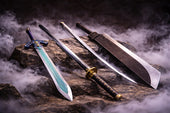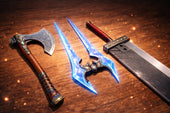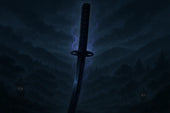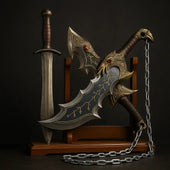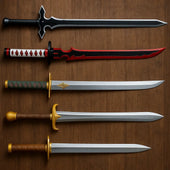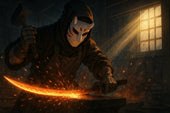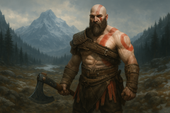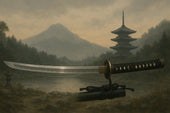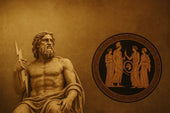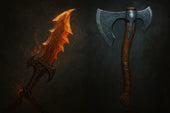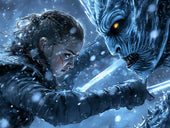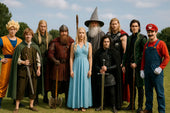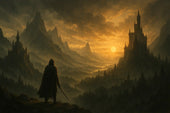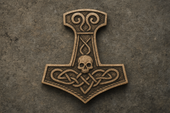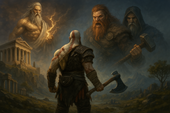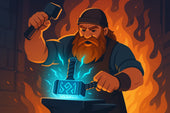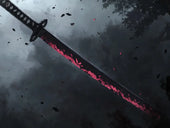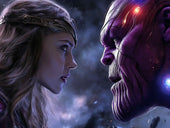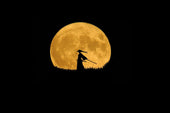Few fantasy sagas have captivated audiences quite like Game of Thrones. Based on George R.R. Martin’s A Song of Ice and Fire series, the HBO adaptation became a cultural phenomenon, immersing viewers in the world of Westeros with its political intrigue, epic battles, and shocking twists. However, as the show progressed beyond the published books, it took creative liberties that led to a divided fanbase.
The Game of Thrones books offer deeper character development, intricate political intrigue, and a more detailed world, while the TV show delivers stunning visuals and fast-paced drama. Though the series captivated audiences, its rushed ending left many disappointed. Ultimately, the books provide a richer, more immersive storytelling experience.
This article explores the key differences between the books and the series, from storytelling depth to major plot variations and the much-debated ending. Which version delivers the richer, more satisfying narrative? Let’s break it down.
Character Development: Books vs. Show
One of the biggest strengths of the A Song of Ice and Fire series is its deep, multi-layered character development. With multiple point-of-view chapters, readers gain insight into each character’s thoughts, motivations, and personal struggles—something that is difficult to replicate on screen.
Arya Stark – The Assassin’s Journey
In the books, Arya’s transformation from a rebellious noble girl into a deadly assassin is slow and methodical. Readers experience her internal struggles, training under the Faceless Men, and her moral conflicts as she learns to kill. One key element of her journey is her deep attachment to Needle, the small sword gifted to her by Jon Snow. Needle represents Arya’s Stark identity, a reminder of her family and past, even as she is trained to abandon her former self. While the Faceless Men encourage her to forget who she was, Arya’s connection to Needle in the books symbolises her resistance to losing her true identity.
The show, however, condenses her journey, making certain elements feel rushed—particularly her final confrontation with the Night King, which lacked the foreshadowing and depth found in the books. While Arya’s training is still a significant part of the series, her struggles with identity, her bond with Needle, and the gradual development of her skills are explored in far greater detail in A Song of Ice and Fire.
Brienne of Tarth – A True Knight in a Cruel World
Brienne of Tarth’s arc in A Song of Ice and Fire is more developed, with significant interactions and quests omitted from the series. The books explore her unwavering honour and inner conflict in greater detail, particularly her relentless quest to find and protect Sansa Stark. Unlike many knights in Westeros, Brienne truly embodies the ideals of loyalty and chivalry, even when they put her in danger or make her an outcast among her peers.
While the show highlights her strength and determination, it streamlines aspects of her journey, particularly in later seasons. One of the most notable changes is how her relationship with Jaime Lannister is handled—her book arc suggests a more layered, complex dynamic, whereas the show rushes its conclusion.
That being said, Gwendoline Christie’s stellar performance brought Brienne to life in a way that deeply resonated with fans. Her portrayal captured both Brienne’s fierce warrior spirit and her vulnerability, making her one of the most compelling characters in the series. Despite some of the show’s narrative shortcomings, Christie’s dedication to the role ensured that Brienne remained a standout presence on screen.
The Storyline: What Changed?
While the Game of Thrones series remained relatively faithful to the books in its early seasons, as it progressed beyond the published novels, major changes emerged—some for better, some for worse.
Ned Stark’s Legacy
Both the books and the show depict Ned Stark as an honourable but politically naïve leader. However, the books provide more backstory about his role in Robert’s Rebellion, his relationship with Lyanna Stark, and the weight of his secrets—particularly his knowledge of Jon Snow’s true heritage, which is hinted at far earlier in A Song of Ice and Fire.
Khal Drogo – A Short-Lived Impact
Khal Drogo’s role in the books allows for a deeper exploration of Dothraki culture and his relationship with Daenerys. In contrast, the show speeds up his arc, reducing his character depth before his premature death. His impact on Daenerys’ transformation is more nuanced in the books, making his loss more significant.
Jaime Lannister – The Redemption That Wasn’t
Jaime Lannister’s redemption arc is one of the most debated elements of Game of Thrones. The books gradually transform him from a ruthless Kingslayer into a more introspective and morally complex character. He begins to question his past actions, his loyalty to his family, and his own sense of honour, making his journey one of the most compelling in A Song of Ice and Fire.
The show follows this trajectory for several seasons, portraying Jaime’s struggle to distance himself from Cersei and become a better man. However, in the final season, this development is abruptly reversed as he decides to return to Cersei, seemingly undoing years of character growth. This sudden shift left many fans frustrated, as it felt inconsistent with his long-running arc.
One significant element of Jaime’s story is his sword, Widow’s Wail, which was forged from Ned Stark’s greatsword, Ice. Symbolically, Widow’s Wail represents Jaime’s conflicted legacy—wielding a blade with Stark origins while still being tied to the Lannisters. In the books, his use of the sword could play a greater role in his internal struggle, particularly as he distances himself from Cersei and redefines his identity beyond being a Lannister. With his journey far from over in the novels, many suspect a different fate awaits him, one that may see him fully embrace the honour he once disregarded.
The Lannisters: A Tale of Two Stories
No family embodies power struggles and political intrigue better than the Lannisters. The show simplifies many of their relationships, while the books provide greater depth and complexity.
Tywin Lannister – The Puppet Master
Tywin is an imposing presence in both versions, but the books give greater insight into his strategic mind and relationships with his children. His interactions with Tyrion, Jaime, and Cersei reveal layers of manipulation, ambition, and ruthlessness that the show condenses.
Tyrion Lannister – From Wit to Oversimplification
Tyrion is a fan-favourite in both the books and the show, but his character arc takes a notable turn in later seasons. In the books, he becomes more cynical and ruthless after killing his father, while the show softens his character, making him less politically sharp and more comedic.
Cersei Lannister – The Power-Obsessed Queen
Cersei’s character remains largely consistent in both versions, but the books delve deeper into her paranoia, fears, and insecurities. Her increasing instability is better paced in the books, making her downfall feel more organic than in the rushed final season of the show.
Jon Snow: The True Heir’s Journey
Jon Snow’s journey is central to both the books and the show, but their execution differs. The revelation of his Targaryen heritage, his leadership of the Night’s Watch, and his role in the battle against the White Walkers unfold differently in each medium.
-
In the books, Jon’s lineage is foreshadowed through cryptic clues, dreams, and subtle interactions. His struggle with his identity is a slow burn, making the eventual reveal (if it happens in The Winds of Winter) likely to have greater impact.
-
In the show, Jon learns the truth abruptly, and it has little consequence. His character development stagnates in the final season, where he becomes passive rather than taking decisive action.
The books also explore his internal thoughts more deeply, particularly his conflicts about duty, love, and leadership.
The Ending: Did the Show Get It Right?
The Game of Thrones finale remains one of the most controversial in television history. While the series had built a reputation for subverting expectations, many fans felt that the final season abandoned its carefully constructed character arcs and complex world-building in favour of rushed resolutions. Key plotlines that had been meticulously developed over several seasons were condensed into just a handful of episodes, leading to a conclusion that felt abrupt and unsatisfying.
One of the biggest criticisms was the handling of Daenerys Targaryen’s downfall. While the books foreshadow her darker tendencies, the show accelerated her transformation into the "Mad Queen" with little build-up, leaving audiences unconvinced. Likewise, Jon Snow’s arc felt stagnant in the final season, with his true heritage as a Targaryen having little impact on the story.
The fates of the Lannisters were also contentious. Jaime Lannister’s long-running redemption arc was seemingly undone when he chose to return to Cersei, while Tyrion Lannister, once the show’s most cunning strategist, made increasingly questionable decisions. Bran Stark being crowned king was another divisive moment, as the show had done little to build his character as a leader.
The treatment of the White Walkers was another significant letdown. Introduced as an existential threat looming over Westeros, they were swiftly defeated in a single episode, with Arya Stark delivering the final blow to the Night King. This resolution left many wondering whether the buildup to their invasion had been truly meaningful.
For many fans, the final season felt like a departure from the show’s earlier strengths—nuanced character development, political intrigue, and a sense of unpredictability. Instead, it leaned into spectacle and shock value, sacrificing the slow-burn storytelling that had made the series so compelling.
How the Books Might Differ
With The Winds of Winter and A Dream of Spring still unreleased, fans eagerly speculate on how George R.R. Martin will conclude the saga. Although Martin has suggested that some aspects of the TV show’s ending will align with his planned conclusion, the way he reaches that ending is expected to be significantly different.
1. A More Gradual Build-Up to Major Events
Unlike the show’s rushed final season, Martin’s books are known for their slow-burn storytelling. Every character’s journey is meticulously crafted, with detailed internal conflicts and intricate political manoeuvring. It’s likely that the fall of Daenerys Targaryen, the fate of Jon Snow, and the eventual ruler of Westeros will be developed over several books rather than condensed into a handful of episodes.
2. The True Purpose of the White Walkers
One of the biggest disappointments of the show was how quickly the White Walkers were defeated. After years of buildup, the Night King was killed in a single episode, and the threat was immediately forgotten. Martin has hinted that the White Walkers—known as the Others in the books—have a much deeper lore, and their role in the final battle for Westeros is expected to be more complex than a straightforward confrontation.
3. Stronger Character Resolutions
Characters like Jaime Lannister, Tyrion Lannister, and Arya Stark have rich, multi-layered arcs in the books that are still unfolding. Their eventual fates will likely be more in line with their established personalities and motivations, rather than serving the needs of a compressed TV narrative. For instance:
-
Jaime’s redemption arc may take a different turn, potentially severing ties with Cersei earlier.
-
Tyrion’s intelligence and cunning could play a more strategic role in the downfall of rulers.
-
Arya’s journey may have a more fitting conclusion that aligns with her character development.
Martin’s methodical approach to storytelling suggests that these resolutions will be more satisfying, with richer emotional payoffs.
4. A More Thoughtful Ruler of Westeros
Bran Stark being crowned king was one of the most unexpected choices in the show’s finale. While Martin has not confirmed whether Bran will rule in the books, his reasoning is likely to be more thoroughly explored if that is the case. Additionally, characters like Aegon VI (a Targaryen claimant missing from the show) and other contenders for the throne could make for a more unpredictable and dramatic conclusion.
Conclusion: Which Tells the Better Story?
So, does Game of Thrones tell a better story in the books or the show?
-
If you prefer rich character development, deeper world-building, and intricate political intrigue, the books are the clear winner.
-
If you enjoy visual spectacle, dramatic performances, and faster-paced storytelling, the show has its strengths—particularly in its early seasons.
Ultimately, for fans of Arya Stark, Jon Snow, Ned Stark, Brienne of Tarth, Khal Drogo, and the Lannisters, A Song of Ice and Fire offers a more immersive and complex experience. While the show introduced millions to Westeros, the books remain the definitive way to experience George R.R. Martin’s epic tale.
Want to bring Westeros into your own collection? Explore The Sword Stall’s range of Game of Thrones replicas and collectibles, featuring legendary characters and their iconic weapons.




